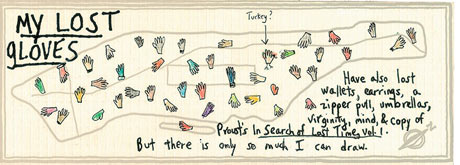It's fast becoming a universal truth, that just about anyone of a literary bent is only too keen to trot out: the importance of 'showing' rather than 'telling' in fiction. In other words, don't say 'he was an angry old man', instead describe how 'he leapt out of his mobility scooter and shouted at the children dropping sweet wrappers'.
Showing not telling is an easy rule to remember and once you get the hang of it it's simple enough to apply to any fiction you read. But I have my suspicions about it. Should something as complex as literature really be judged by so simple a rule? More importantly, are we not in danger of imposing an arbitrary constraint on our writing, and therefore putting a limit on our powers of expression - the one thing that should have no limits?
As it happens, my natural inclination is indeed to show rather than tell. This stems in part, I think, from my having previously worked as a journalist which, unless you're employed by the Daily Mail, is (or should be) about specifics - who, what, where and when - and a semblance of objectivity. It also comes from my admiration of works by authors such as Cormac McCarthy and JM Coetzee, where exposition is either completely absent or kept to an absolute minimum.
But over the past year as I've written more short fiction I've allowed myself the luxury of a bit of telling here and there, as I strive to pack as much as possible into a limited word count. Is this at all a positive development in my style, or simply a bad habit I'm getting myself into?
Ultimately that's for others to judge, but I can't help thinking that the show-and-tell rule is as much associative as causal. Just as watching lots of TV may be associated with obesity and ill health, that does not mean the former is the thing that always causes the latter.
Likewise, you are likely to find that writing which includes a lot of telling isn't going to be terribly good. But the use of telling need not itself be the principle reason it's no good.
I recently found support for this idea by reading Paul Auster's novel, Sunset Park. Right from the start this book is nearly all tell, with the showing saved for the most crucial moments in the story. And the big surprise is that it works - the prose is alluring and quickly draws the reader into an absorbing story - with the novel's weaknesses relating to overall narrative arc and a slightly unsatisfying ending, rather than Auster's writing style.
I don't doubt there's a strong basis for the show/tell rule, and for most people most of the time it probably is the best way to ensure effective prose. But even so, perhaps we should keep minds as open as possible in the quest to produce writing that works.



